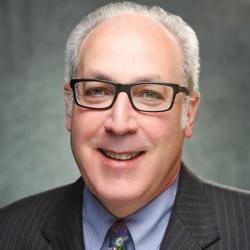

How did you get involved with digital health?
I became involved with remote patient monitoring in 2000 as the first cardiologist in private practice to utilize this for my patients with implantable defibrillators. But even before that, I used electronic medical records in my group practice. The system was even mobile (on the Palm Pilot in the late 1990s). From 2003 to 2005, I was instrumental in managing a project that took remote monitoring data from implantable cardiac rhythm devices to electronic records; this was cutting edge at the time. When mobile health/digital technologies started getting into the realm of smart phones, and sensors really fanned out, I wanted to get more involved in the field of mobile health, applying my clinical and technological experiences as a consultant. In 2011, when I started blogging on the subject, a clinical perspective was lacking. There still exists a gap between developers and clinicians. This gap is no better demonstrated than in the area of electronic health records and mobile health technologies.
Why are physicians reluctant adopters of technology?
A few physicians are actively involved in how certain technologies are adopted into clinical practice. Overall, clinicians are not involved in many of the companies that are developing these innovations. On my blog, I write for an audience that ranges from doctors to patients to IT professionals to developers. I address topics in a broad fashion, so different audiences can see other stakeholders’ perspectives. But I always have the patient as the primary focus. Developers need more perspective: if they lose sight of the patient, they will not be successful. Thus, they need input from a lot of different people, including clinicians.
How well are clinicians addressing technology, especially in term of healthcare efficiency?
Clinicians are late to the table and appropriately so. They want to see proven benefit to their patients and are wary of technology that might decrease already precious time in front of patients. The people who are jumping on technology’s use in clinical practice are developers and vendors. They see opportunities but also need to realize how different the healthcare arena is from other industries, such as retail or finance, with regards to adoption of technologies.
What kinds of opportunities exist in healthcare?
These opportunities lie in saving money in healthcare systems. And the specific opportunities are unprecedented. There is a huge shift in an enterprise, from looking at technologies as revenue producers to viewing them as money savers. An excellent example is the use of remote monitoring to avoid readmission penalties for hospitals. And today, there’s a new challenge for vendors: There’s very little in the way of studies showing outcomes, whether financial or clinical. I’ve been criticized for saying the onus is now on developers and vendors to show that their products deliver what they claim they do. Integrating electronic records, saving money, improving outcomes; everybody has those headlines, but very few have demonstrated true efficiency and changes in any kind of outcome.
Why do vendors need clinicians to achieve positive outcomes?
A lot of people in technology are selling hope. Many have moved into this arena without ever having been in healthcare. Too often, the developers and vendors leave out clinical people. Therein lies a recipe for failure. You need clinicians not just to give input on clinical workflow, but perhaps also in advising how to get into the marketplace in the first place. If you have something that you’d like to present to a medical institution, do you go to the CEO? CIO? CFO? Director of Nursing? Medical Director? This might depend upon local ‘politics’ as well.
In Part Two of my interview with David, I’ll cover the sources of physician resistance to new technology, and what the elements of successful adoption are.